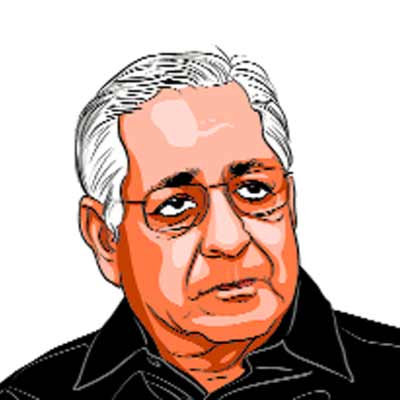Opinion Meeting the Dalai Lama
My first visit to Dharamsala last May was a unique experience. The highlight was the audience His Holiness the Dalai Lama was pleased to give me. His very presence was elevating.
Meeting the Dalai Lama
My first visit to Dharamsala last May was a unique experience. The highlight was the audience His Holiness the Dalai Lama was pleased to give me. His very presence was elevating. The main subject of conversation was the historic move of His Holiness about devolution of his political powers to elected members of the Tibetan Parliament in Exile.
In the course of our conversation,the Dalai Lama mentioned that he had first met Nehru during his visit to China in 1954. Premier Zhou Enlai was introducing members of the Chinese government to Nehru. When the Dalai Lama was introduced,Nehru stopped and looked at him intently for about five seconds. However,before any communication could take place,Zhou Enlai hurried Nehru forward to meet the other dignitaries. The Chinese are very clever, the Dalai Lama said with a twinkle in his eyes. When I asked him about his reported sadness over the killing of Osama bin Laden,he said he did not approve of the killing of any human being and is opposed to capital punishment. He was all praise for the Parsi community,one of whom,Nowrojee,had settled in Dalhousie since 1857 and his shop has been a landmark. His regret is that so far he had not visited a Zoroastrian fire temple. The Dalai Lamas creed is Compassion. He was keen to have Emily Dickinsons poem,If I can stop one heart from breaking ,which beautifully encapsulates the essence of compassion.
It was fascinating to observe members of the Tibetan Parliament in exile incorporating new articles to the Tibetan Charter to effectuate devolution of power from the Dalai Lama. The proceedings were conducted in right earnest and with decorum. The newly elected members were set to take oath on last Monday. The Tibetan parliamentarians elected last Monday a Harvard scholar Lobsang Sangay,43,as their new prime minister to assume the political duties of their spiritual leader,the Dalai Lama.
One disappointing aspect about this lovely hill-station is the chaotic vehicular traffic which congests every road and lane. Noise pollution is at its peak. Active citizenry of Dharamsala would do well to rectify this state of affairs.
Roadblocks for the Lokpal
Enactment of the Lokpal legislation has unfortunately run into roadblocks. One major point of difference is whether the Prime Minister should be brought within the purview of the legislation. The government members are opposed to the PMs inclusion because it is apprehended that by political manipulation,the PM may be made dysfunctional and the stability of the government can be impaired. Civil society members do not share the governments apprehension. It may be noted that former Chief Justices Venkatachaliah and JS Verma have expressed strong reservations about the PMs inclusion. Thus,there is genuine concern and difference of opinion over the issue which should not be brushed away as a political ploy.
Inclusion of the superior judiciary within the Lok Pals purview is problematic. There is an existing legal mechanism,viz. the Judges (Inquiry) Act 1968 under which a high powered committee can investigate allegations of misbehaviour against a judge and submit its report to Parliament. There are existing constitutional mechanisms for removal of Supreme Court and High Court judges for misconduct,viz. Articles 124 and 217. Bringing the higher judiciary within the purview of the Lokpal is likely to be challenged on the ground that the same impinges on the aforesaid constitutional provisions. A constitutional challenge can be averted by effecting amendments to the Constitution incorporating the relevant provisions of the Lokpal legislation. But that would be a time consuming process. If the Judges (Inquiry) Act 1968 is weak,improve upon it. If necessary,strengthen the pending Judicial Accountability and Standards Bill. But remember that judicial independence is vital and to ensure that it is not impaired,judicial accountability should be enforced by an exclusively judicial body. Insistence on inclusion of the higher judiciary in the Lokpal legislation is unwise. It will delay enactment of the much awaited legislation. The way forward is by constructive dialogue.





